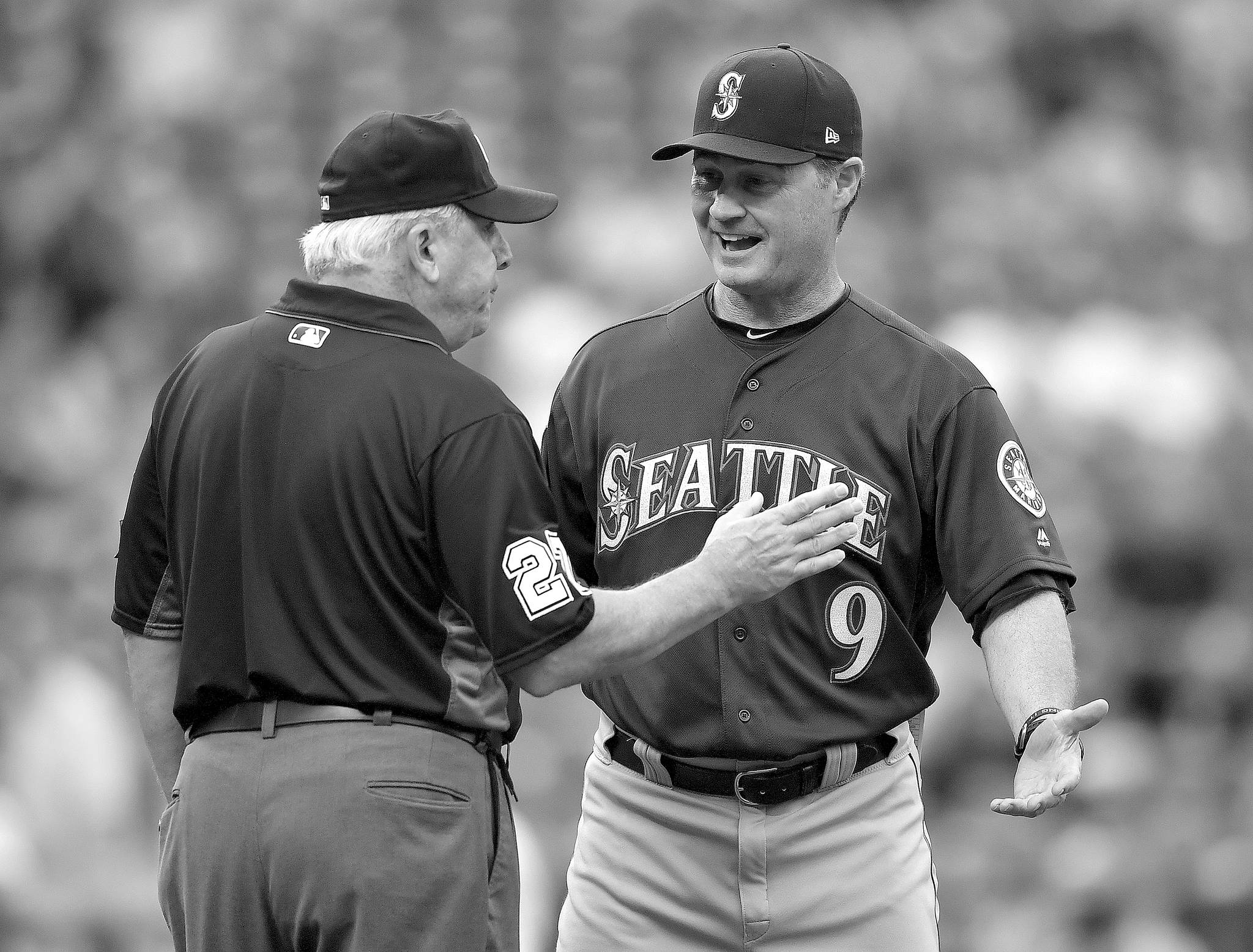Even if the Seattle Mariners continue to slide over the second half of the season, manager Scott Servais seems in little danger of losing his job because of his close relationship with general manager Jerry Dipoto.
That’s good news for arguably the second-greatest manager in franchise history.
Say what?
In part because of the Mariners’ frequent late-inning pratfalls this season, Servais wouldn’t be everybody’s choice as the club’s second-best skipper.
But if he isn’t, who is?
The M’s are one of the few baseball franchises (if not the only one) in which there is no dispute about the greatest manager.
Lou Piniella not only possesses the club’s best won-loss record, he is literally the only skipper to lead this 42-year-old franchise into playoff competition (which he did on four occasions). He is the lone Mariner to receive an American League Manager of the Year award.
As his few detractors noted, Piniella was never a great tactician. His secret was conveying his intolerance of mediocrity to the team without alienating the players.
There also may be something to the theory — offered by Daily World Editor Doug Barker, among others — that the players were afraid of igniting Lou’s volcanic temper.
The line of other Seattle managers forms well to the rear of Piniella.
In chronological order (excluding Piniella and some interim managers who didn’t last a full season), they include Darrell Johnson, Maury Wills, Rene Lachemann, Del Crandall, Chuck Cattier, Dick Williams, Jim Lefebvre, Bill Plummer, Bob Melvin, Mike Hargrove, John McLaren, Don Wakamatsu, Eric Wedge, Lloyd McClendon and Servais.
For the purposes of this exercise, only the manager’s performance in Seattle should be considered. That probably excludes Williams and Melvin — quite possibly the two best skippers in this group.
The M’s were victims of bad timing with both. At the end of a Hall of Fame career, Williams was even more irascible than his reputation and clashed with several players (famously accusing staff pitching ace Mark Langston of “lacking gut one”).
In contrast, Seattle was Melvin’s first managerial job. Drawing the unenviable task of immediately following Piniella, he was widely viewed as a wimp. He has since proven himself to be an capable leader, winning three Manager of the Year awards in Arizona and Oakland.
Wills, meanwhile, often has been cited as the worst manager in baseball history. Battling a drug addiction at the time, he did such bizarre things in Seattle as once signaling for a relief pitcher while neglecting to have anyone warm up.
All of which leaves five finalists for the less-than-coveted honor as the second-greatest Mariner manager. Again in chronological order, they are:
Rene Lachemann (1981-83). His record doesn’t reflect it, but “Lach” was respected as one of the best managers in baseball during his Seattle tenure. Particularly adept at handling a pitching staff, the former catcher never shed his reputation of running too loose of a ship.
Jim Lefebvre (1989-91). Guided the Mariners to their first .500 season and was immediately fired (that will teach him). According to Art Thiel’s fine book, “Out of Left Field,” Lefebvre’s dismissal was tied to management’s fear that he would learn and leak owner Jeff Smulyan’s plan to move the franchise to Tampa. A high-energy, rah-rah type of manager, the former Dodger infielder quickly wore out his welcome with several key players.
Mike Hargrove (2005-07). A successful manager in Cleveland, Hargrove seemed to be finding his footing in Seattle when he mysteriously resigned with the club riding an eight-game winning streak (differences with Ichiro Suzuki were widely rumored). He hasn’t managed since.
Lloyd McClendon (2014-15). He pushed all the right buttons in keeping an undermanned Mariner team in playoff contention into the final weekend of the 2014 season. Although later viewed as an enabler for team shortcomings during a much less successful 2015 campaign, McClendon probably could have kept his job had it not been for new general manager Dipoto wanting his own man in the manager’s chair. That turned out to be…
Scott Servais (2016-present). Despite this season’s struggles, Servais still owns the franchise’s second-best managerial percentage — and he really can’t be blamed for the lack of talent at his disposal this season. For better or worse, he has taken the M’s into the analytics age. Under his leadership, the Mariners have an excellent record in close and extra-inning games — one method of judging a manager — and his relationship with the players seems to be strong.
Having set up this game, I’m still not certain how I would mark my ballot.
For a single season, I’d vote for McClendon, who deserved the AL Manager of the Year award in 2014. But McClendon was very much a believer in one-or-two-batter situational matchups. By the end of his second year, fans became weary of the Mariners entering extra-inning games with many of their best position players and all of their top relievers unavailable.
I wouldn’t hire Servais and Dipoto as a package, because I’ve lost faith in the latter’s “step-back” plan. If that strategy doesn’t bear fruit as advertised by 2021, I still think there’s a chance Dipoto would throw his buddy under the bus rather than accept responsibility.
But if the Mariners are contenders in two years, Servais could be the ideal man to lead them.
Because he just might be the second-best manager in franchise history. And with this organization, No. 2 really does need to try harder.



